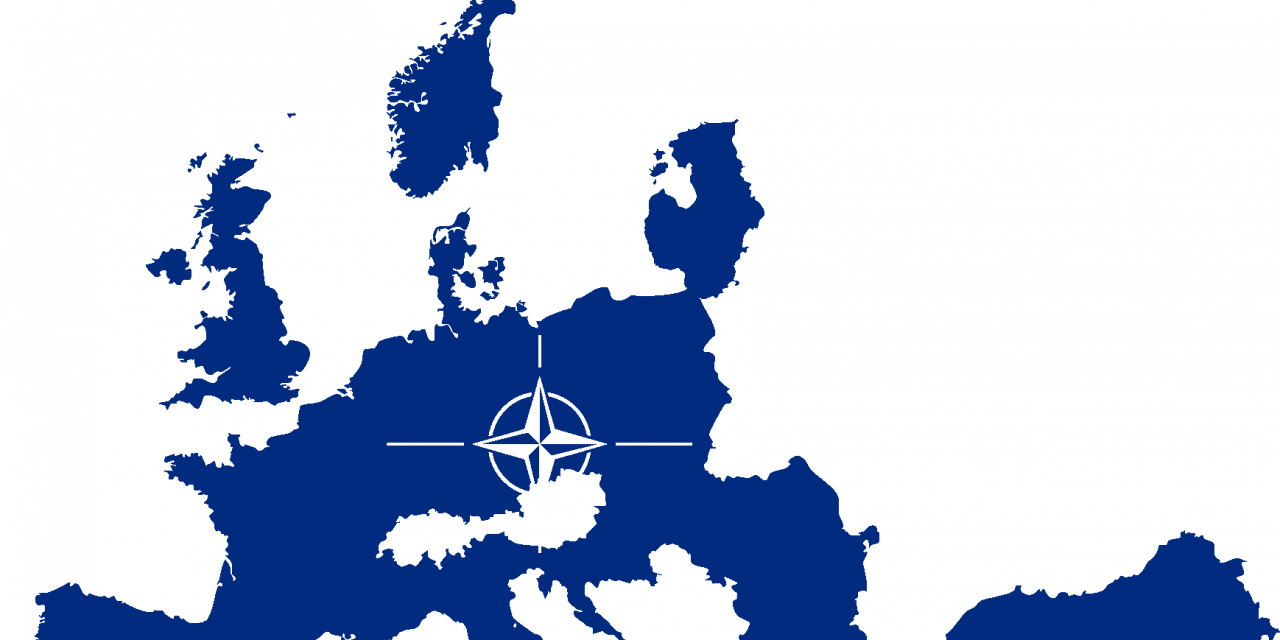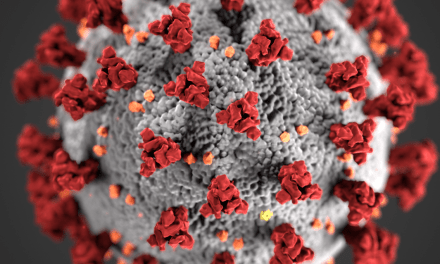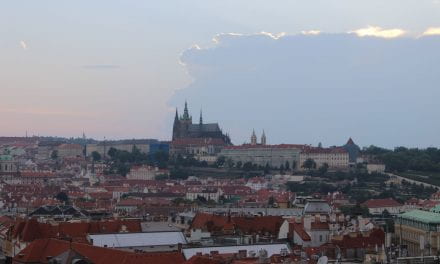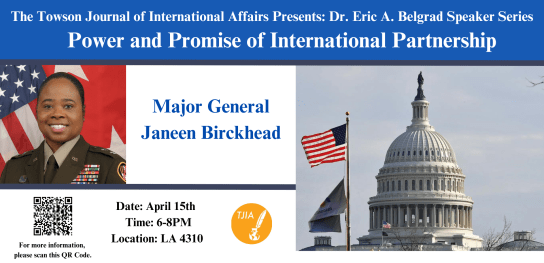By: Connor A. McNairn*
Throughout its 70-year history, the North Atlantic Treaty Organization (NATO) has proved relatively efficient at providing collective security for both North America and Western Europe. It achieved its principal goal of the twentieth century, effectively confining Soviet growth and thwarting the escalation of another major European war.[1] Following the fall of the Soviet Union, NATO members reoriented the organization’s mission and actively sought to incorporate Eastern European states within its ranks.[2] And following Russia’s 2014 annexation of Crimea, the organization’s signatories coalesced around the collective defense of Eastern Ukraine.
Indeed, NATO has enjoyed a large share of victories; but in recent years, the organization’s prospects have dimmed. In short, in order for the 70-year-old NATO to regain its global foothold, its most critical leaders must re-commit to the principles upon which the organization was originally founded. Moreover, these leaders must also address the internal problems which so imminently threaten the organization’s growth potential. If successful in the aforementioned endeavors, NATO will continue to thrive as the world’s most historically successful military defense bloc. But if its members fail to recalibrate with flexibility and recommit to the promise of liberal defense, the organization’s power will dissolve, effectively paving the way for unchecked Russian aggression and the rise of authoritarianism across Europe.
Leadership
The efficacy of international institutions absolutely hinges on the strength of the institutions’ leaders. Following the conclusion of World War II, the United States, in conjunction with its Western allies, sought to restructure global institutions so as to prevent similar future calamities. The West believed that integration in economic and political realms, paired with mutually-assured security structures, would ultimately serve as an effective antidote to future global conflict. In essence, it was the ambition of the West – a significant portion of which originated from the United States – that laid the foundation for international coalition. But since President Donald Trump’s inauguration in January 2017, American leadership has been absent from the NATO calculation.
During a 2018 meeting of NATO member states, President Trump blasted German energy deals, arguing, “It’s very sad when Germany makes a massive oil and gas deal with Russia where you’re supposed to be guarding against Russia….”[3] Later during those same remarks, the president also outwardly criticized NATO’s other member states, claiming that they do not pay their fair share to the alliance.[4] Such unbridled castigation in open forum casts doubt in American leadership potential. But perhaps even more significantly, in January 2019, Trump aides claimed that the president and his advisors considered pulling out of the alliance altogether.[5] According to the aides, President Trump saw little utility in the organization, deeming it more wasteful than effective in practice.[6] Given that the United States has historically served as one of, if not the greatest, drivers of NATO operations, Trump’s drastic deviation from precedent motivates a variety of justified questions. This is not to say that world leaders cannot criticize organizations to which they are party; but absent any substantive displays of support, Trump’s comments ring harsher.
Surely the American president is not the only world leader capable of stepping into a major leadership role in the alliance. But because the United States spends 3.57% of its GDP on its defense – easily the highest share of GDP among all NATO members – its vacation of leadership hardly goes unnoticed.[7] It is important to note that in late January, President Trump re-affirmed the United States’ commitment to the alliance, claiming that the U.S. is “100 percent” committed to NATO’s mission.[8] That said, the occasional restatement of commitment by an American president, especially following months of direct criticism and speculation of withdrawal, is not the kind of leadership that facilitates successful NATO operation.
Internal Weakness
Internal weaknesses within NATO, in conjunction with failures in leadership, directly imperil the organization’s future efficacy. Given that the alliance operates through collective action and mutual assurance, when its member states demonstrate political or economic weakness, the organization’s aggregate effectiveness is substantially decreased. Such weaknesses are best analyzed through the resurgence of nationalist autocrats in Eastern Europe and the economic and political failures of traditionally powerful Western European states.
With regard to Eastern Europe, three key states present significant challenges to the NATO alliance: Poland, Hungary, and Turkey. In Warsaw, although traditional antagonism toward Russian expansion still abounds, increasingly authoritarian and illiberal domestic politics threatens the underlying motivation of the alliance as a collective. For example, the Polish government recently passed legislation which would criminalize speech concerning the involvement of the Polish government or people in the Holocaust. The legislation earned international ire, including from the United States.[9] While the criminalization incorporated in the law’s original text was summarily overturned just months after its original passing, the Polish government maintained strict civil crackdowns on individuals directing blame at the Polish government for its role in the Holocaust.[10]
Similarly, in Hungary, Viktor Orbán has capitalized on a series of illiberal constitutional and systematic changes to further solidify his government’s strength. Not only has Orbán praised the authoritarian styles of Putin publicly, but he has also espoused a number of foreign and domestic policy views which mirror Putin’s. Further, Orbán has also significantly restricted traditionally liberal freedoms, such as freedoms of the press and speech. Considering Hungary’s historically imperative role as an Eastern European counterweight to Russian expansion, Orbán’s political behaviors are antithetical to the broader mission of NATO. [11]
Last, in Turkey, President Recep Tayyip Erdoğan has engaged in increasingly authoritarian and brutal behavior. After his government survived a 2016 coup, Erdoğan has cracked down on human rights, actively disappearing and arresting thousands of Turkish citizens. What is more, the relationship between Ankara and Washington – one that has remained historically imperative – has begun to wane. The relationship took an especially significant hit following the Turkish imprisonment of Andrew Brunson, an American pastor accused of participating in the failed coup attempt against Erdoğan. And perhaps most concerning, Ankara and Moscow have grown their military relationship, namely through the sale of anti-missile defense weapons.[12] Considering that NATO still functions as a repellant of Russian adventurism in Eastern Europe, Turkey’s illiberal government crackdowns and budding relationship with Russia are serious causes for concern and ultimately undermine the goal of the alliance. Such behaviors are so costly, in fact, that Turkey’s NATO membership has been called into question by global policymakers and leaders alike.
In addition to the rise of authoritarianism in Eastern Europe, domestic troubles in states belonging to the European Union (EU) have also directly imperiled NATO’s general effectiveness. In Italy – a country currently borrowing at 130% of its GDP – budget fights and far-right leadership have threatened stability within the union.[13] Following the decimation of the Christian Democrats in Hesse and Bavaria-based elections last fall, German chancellor Angela Merkel, long viewed as Europe’s most prominent political leader, announced that she would not seek reelection after her current term ends in 2021.[14] In France, the widely unpopular President Macron, who may have the opportunity to assume European leadership following Merkel’s exit, continually struggles to step up to his own domestic challenges.[15] And in the U.K., the current Brexit crisis threatens the very stability of both the British and European Union’s economies.[16] In an era where the Russian Federation is increasingly motivated to flex its own expansionist muscles, weakness among the EU’s historical stabilizers, paired with a growing threat of authoritarianism in Eastern Europe, largely imperils the political, economic, and physical security of European states.
Conclusion
The future of the NATO alliance depends on its members’ ability to remain committed to the bloc’s founding principles. Following a catastrophic World War II, the West committed to quelling any future conflicts which may result in similar carnage; it also remained unified in the face of an expanding Soviet Union, which proved hungry for territorial conquest. Yet, after surviving 70 years and remaining relatively effective at realizing its original goals, the alliance suffers from an explicit lack of American leadership and internal fissures, namely within Europe. The bloc can, and likely will, survive if the United States is willing to reassume its leadership role. That said, greater commitments – both financial and political – from European states must also complement American leadership in carrying out NATO operations. Historical success, however impressive, does not protect an institution from future rapid and dramatic collapse. And if NATO’s members fail to coalesce around the principles which first drove the organization’s creation, such a collapse seems increasingly likely.
[1] The Economist, “How NATO is shaping up at 70,” The Economist, last modified March 14, 2019, https://www.economist.com/special-report/2019/03/14/how-nato-is-shaping-up-at-70
[2] Stratfor, “NATO Finds Balance in Eastern Europe,” Stratfor Worldview, last modified November 26, 2014, https://worldview.stratfor.com/article/nato-finds-balance-eastern-europe
[3] NPR, “How President Trump’s Criticism of NATO Members is Playing Out In Europe,” NPR, last modified July 11, 2018, https://www.npr.org/2018/07/11/628137880/how-president-trumps-criticism-of-nato-members-is-playing-out-in-europe
[4] Ibid.
[5] Julian E. Barnes and Helene Cooper, “Trump Discussed Pulling U.S. From NATO, Aides Say Amid New Concerns Over Russia,” The New York Times, last modified January 14, 2019, https://www.nytimes.com/2019/01/14/us/politics/nato-president-trump.html
[6] Ibid.
[7] Dave Lawler, “By the numbers: NATO defense spending,” Axios, last modified July 11, 2018, https://www.axios.com/nato-defense-spending-by-country-two-percent-0ec4aab3-7727-453a-bdad-dfefc34eef3c.html
[8] Rebecca Morin, “Trump: We will be with NATO ‘100 percent,’” Politico, last modified January 17, 2019, https://www.politico.com/story/2019/01/17/trump-nato-alliance-pentagon-1108846
[9] BBC News, “Poland Holocaust law: Government U-turn on jail threat,” BBC News, last modified June 27, 2018, https://www.bbc.com/news/world-europe-44627129
[10] Ibid.
[11] Rob Berschinski, “The Threat Within NATO,” The Atlantic, last modified April 7, 2018, https://www.theatlantic.com/international/archive/2018/04/nato-hungary-authoritarianism/557459/
[12] Ibid.
[13] Holly Ellyatt, “Italy faces ‘sky-high’ borrowing costs and needs to present budget facts now, top EU officials warn,” CNBC, last modified October 15, 2018, https://www.cnbc.com/2018/10/15/italy-2019-budget-italy-borrowing-rates-could-rise-further-eu-officials-warn.html
[14] Josie Le Blond, “German chancellor Angela Merkel will not seek re-election in 2021,” The Gaurdian, last modified October 29, 2018, https://www.theguardian.com/world/2018/oct/29/angela-merkel-wont-seek-re-election-as-cdu-party-leader
[15] Daniel Boffey, “Why Brexit is just a sideshow for an EU beset by problems on all sides,” The Gaurdian, last modified November 4, 2018, https://www.theguardian.com/world/2018/nov/04/brexit-sideshow-for-eu-beset-by-problems
[16] Ibid.
*Disclaimer: The content contained in the following material is the sole ownership of the author and does not reflect the Towson University Journal of International Affairs nor Towson University in any respect whatsoever.







